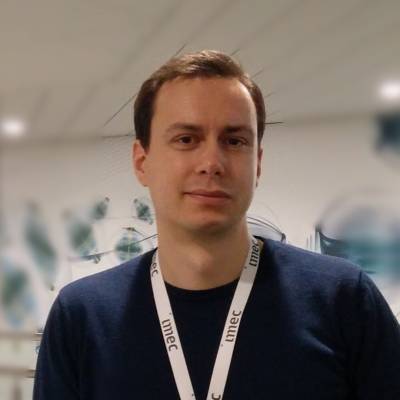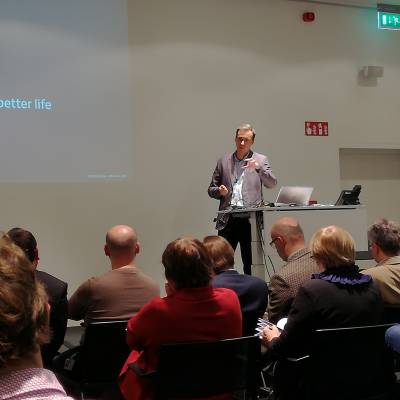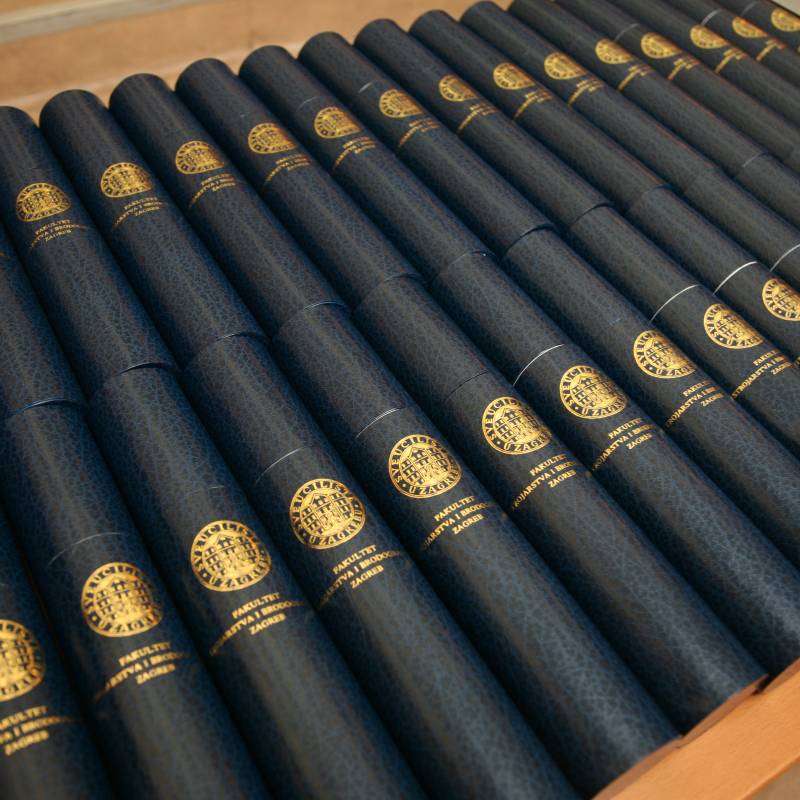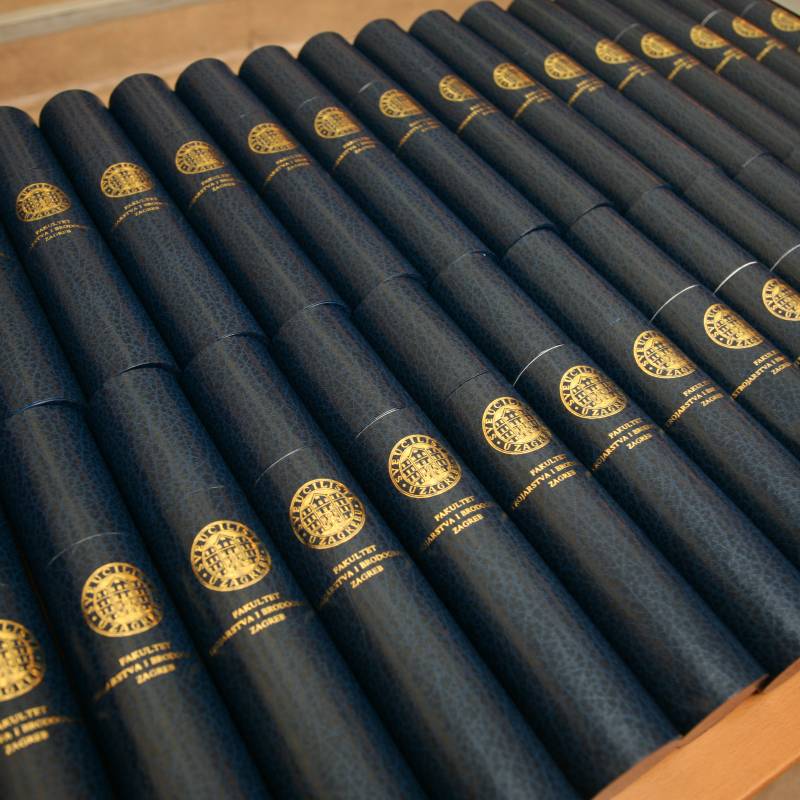At the time he enrolled in FSB, Luka Ključar was convinced he will be making airplanes.
'My grandfather was a mechanical engineer, and it was natural to me to follow in his footsteps and enroll in FSB after high school. Why Aeronautical engineering – well that’s pretty obvious – we all saw Top Gun, and there was no room for doubt. That was my calling. The course at the Faculty of Transportation was too expensive, and I knew I’ll be able to get wide range of engineering skills at FSB.”, says Luka and adds:” In the end I’m working on something totally different, semiconductors and microchips. It’s not exactly Top Gun, but it’s still challenging.”
Since IMEC, the institute he is working in, has good connections with FER and Professor Adrijan Barić, a number of selected students from FER often go for internships. “In 2012 IMEC was looking for a mechanical engineer, and I was fortunate enough to go, mainly thanks to the recommendation from Professor Marjanović. I’ve spent 6 months working there, after which I’ve been offered a PhD scholarship, pending my graduation from FSB. The next several years, I’ve been working in IMEC and on my PhD in KU Leuven.”
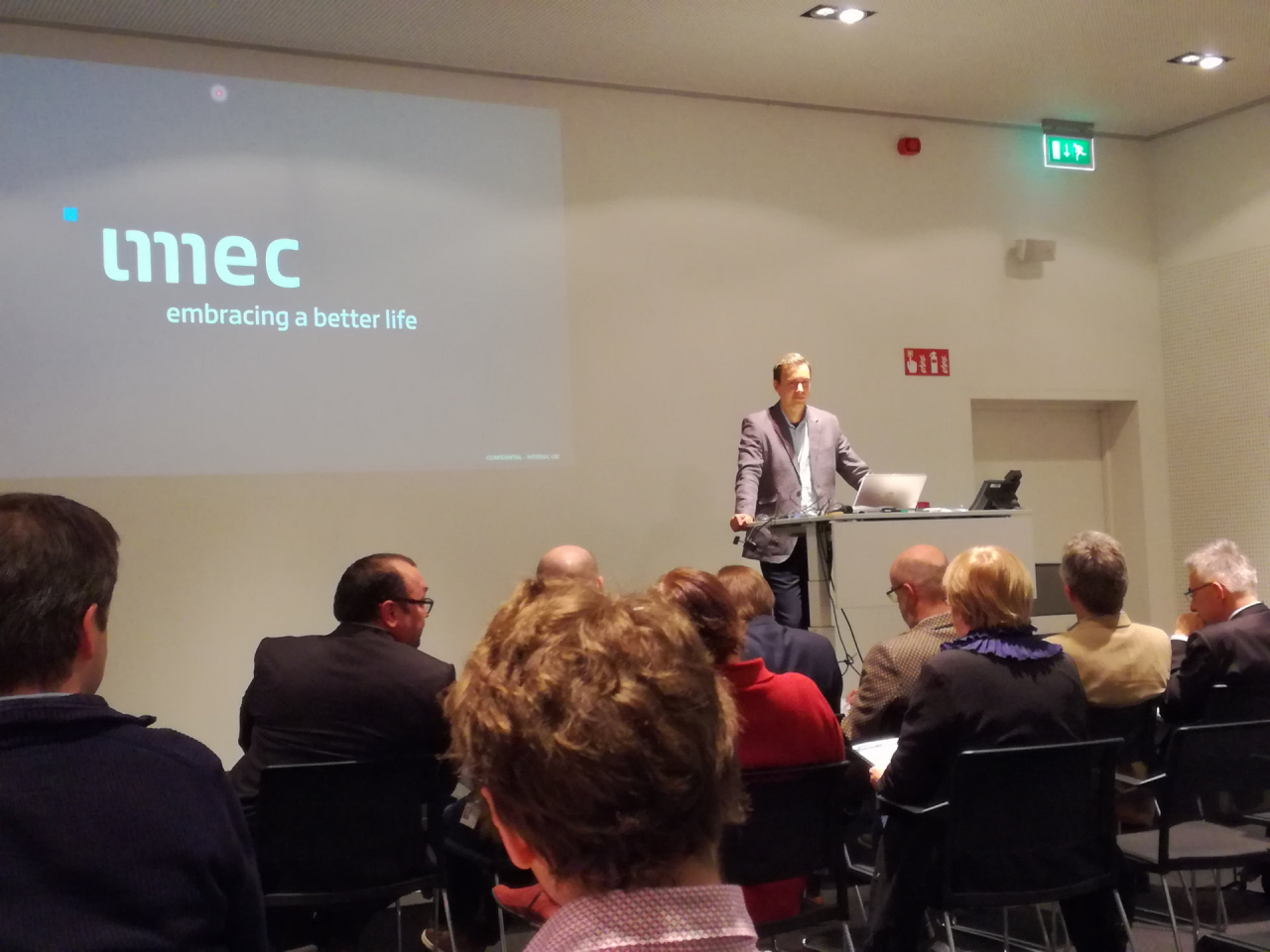
It was this willingness to learn and apply a multidisciplinary approach, that helped Luka to link his career with IMEC. Although it’s not easy to obtain a permanent payroll position in IMEC, after graduating in 2017, he stayed in IMEC as a process integration engineer. “The important thing is to be disciplined, highly motivated, and be able to perform at high level on a day to day basis. Sometimes it can be difficult to say “I don’t know”, but that’s the way that enables you to always learn something new. Working atmosphere is great in IMEC. You’re always a part of a team, and usually play a small role in a complex system that has at least a dozen pieces. You always deal with other specialists, which gives you unique opportunity to get a new angle at things and learn something new.”
Luka points out that his time at FSB taught him how to dissect and analyze problems, and quickly adapt in new situations, which is crucial in his line of work. “The academic criteria in FSB are pretty high. Life at FSB is not exactly easy, there are a lot of mechanics, thermodynamics, mathematics, etc. Personally, I always enjoyed lectures from Professor Virag on fluid mechanics. He was always able to connect abstract concepts and present them in a practical from.” It is exactly this last point, connecting abstract with practical, which is a hallmark of studying at FSB.
Beside practical “hard skills”, Luka points out that people (or soft) skills are equally important for working in IMEC, which is extremely international and diverse. ”Usually people from FSB, myself included, are sometimes inflexible in their way of thinking. However, people are not machines. You can’t apply principles of mechanics in human interactions and expect things to work. It’s very important to be able to listen to others. Without it, you can forget about getting things done.”
He’s been living in Belgium since 2012. In future, he’d like to try out his luck in Asia, since he travelled there quite frequently, and has basic Japanese skills. However, that would require a change of mind set. “You need to be able to adapt to the system. And if the system is good, so much the better”.


